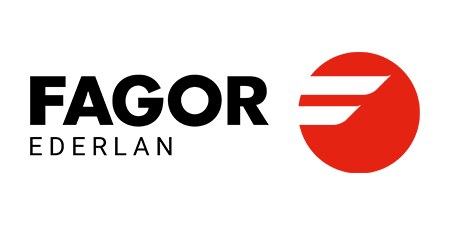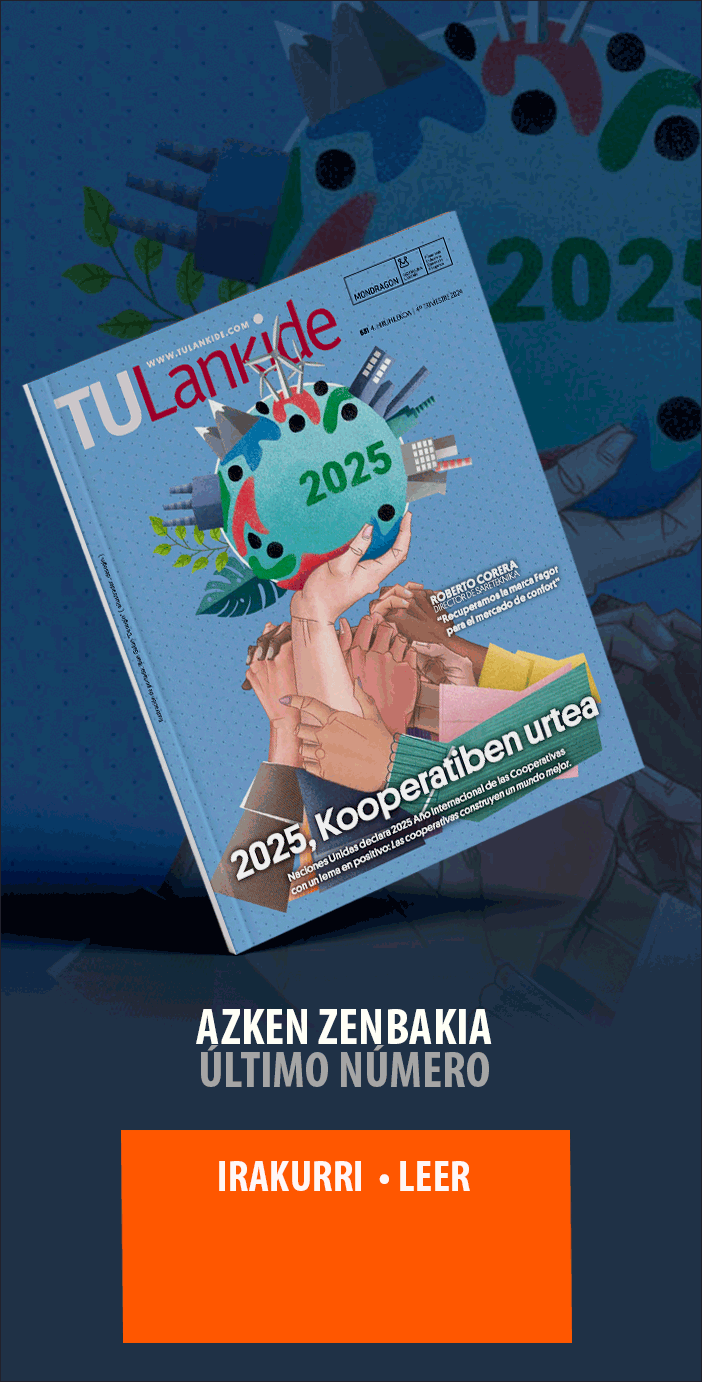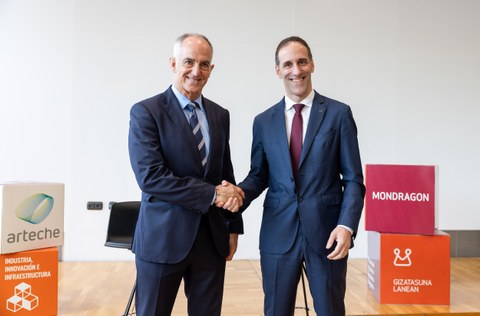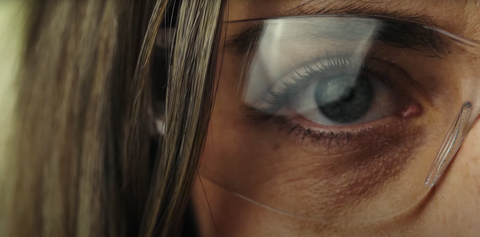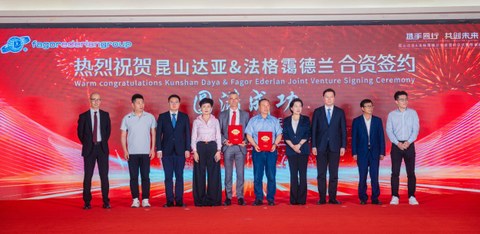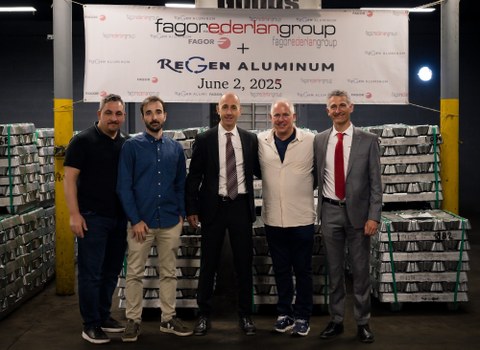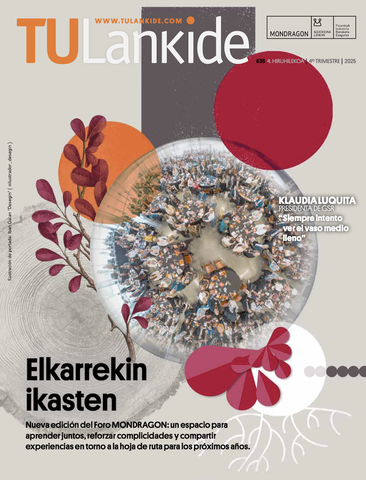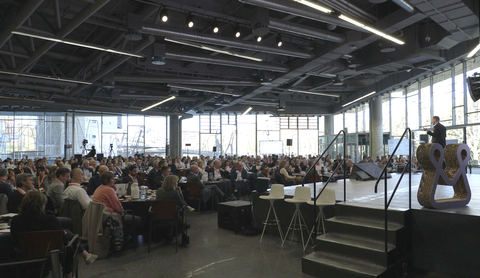Most read
- 1. Danobatgroup sets a new turnover record of €344 M in 2024
- 2. Danobat revolutionizes manufacturing with a new precision robot
- 3. MONDRAGON expands its digital presence with Bluesky
- 4. MONDRAGON leads ASETT, the Social Economy Hub for social transformation
- 5. Orbik Cybersecurity, the first technological start-up to become a co-operative
- 6. Eika acquires Stone Cooker S.L and its innovative 'Suiseki' table to boost growth
Juan Mari Palencia: "Today, 50% of our tenders are for electric vehicles"
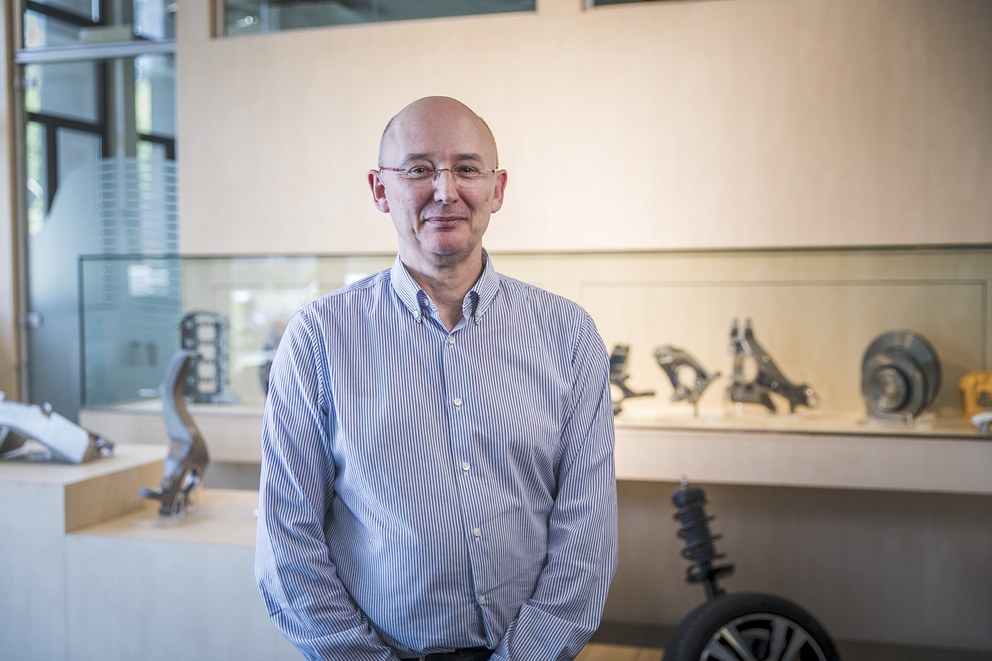
Juan Mari Palencia embraces many challenges as he takes on Fagor Ederlan Group’s managing directorship for the second time: leading a 4,000 strong team working in different areas, the new electric vehicle paradigm, globally managing the business on the pandemic-induced uncertainty scenario and driving an industry that fights to achieve decarbonisation of the planet. We spoke about all these challenges in our interview.
Fagor Ederlan is affected by the sector’s current transition to a new mobility concept. Can you give us the “up-to-the-minute results”, as they say in the sports world?
We’ve been working on this transition and the needs of electric vehicles for a long time now. We have a technology road map as a guide for developing components and systems we’ve identified as opportunities as we face the changes in the sector. Reducing vehicle weight is a critical aspect in this regard, and we’ve developed products and advanced technologies to provide lightweight solutions, ranging from brake discs and drums for the electric vehicle brake function to structural components such as aluminium subframes or electric power train components like electric engine housings and power electronics with different levels of transmission integration.
We have also begun to explore and develop other systems such as drum brakes, the electric rear axle, and so on. At the same time, initiatives for battery packs and hydrogen applications have been launched to complete the development programme for the next few years.
At the same time, initiatives for battery packs and hydrogen applications have been launched to complete the development programme for the next few years.
We’ve been working on this transition and the needs of electric vehicles for a long time now.
We have identified the type of products the market will use and that’s where we’re focusing all our efforts, for both innovation and production processes.
What percentage of your production is currently geared to electric vehicles, and how will that evolve?
Up until a couple of years ago, less than 7% or 10% of the tenders we made were for this type of products more associated with pure electric technology, but today, 50% of our tenders are for electric vehicles.
Fagor Ederlan’s sales for electric powertrain components also doubled in 2021 and a ten-fold increase is expected in 2022 due to new strategic projects, some of them with very important clients in the sector’s electric transformation area. So we can certainly say our powertrain business is making very firm progress in the electrification of its product catalogue.
So the R&D department’s “on fire” now, is that right?
Totally. And with a variety of aims. We’re innovating in products and material to develop new components and systems for the vehicle of the future and to diversify our current business. But we’re also innovating in processes to transform our production plants to turn them into the factory of the future: more digital, connected and sustainable.
In your opinion, what are Fagor Ederlan Group’s strengths for meeting the challenge of transition to electric mobility?
Firstly, our Edertek technology centre and its innovative capacity in production processes, materials and component design. It’s working very well over here and it’s an idea we want to export to China and the United States.
Secondly, people, and their ability to adapt to a new scenario that will require training and capacity-building for all of us at Fagor Ederlan so that we can reduce the gap between today’s knowledge and the knowledge we expect to be needed in future, even recruiting people with new profiles, mainly in the areas of digitisation, data, materials, etc.
And lastly, third-party collaborations, together with the Corporation, so that we can work on other projects such as developing battery packs or electric axles.
Our long-term goal is ultimately to safeguard jobs, in line with our strategy of commitment to the local environment.
Our Edertek technology centre’s innovative capacity in production processes, materials and component design works very well over here and it’s an idea we want to export to China and the United States.










